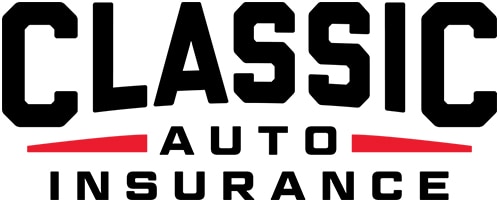In 1970, Plymouth created a powerhouse vehicle that was flashy in both performance and style. The 1970 Plymouth Superbird was an offshoot of the Plymouth Road Runner, and today, it’s a highly-coveted car amongst vehicle enthusiasts. Plymouth only created around 1,920 Superbirds, and it was primarily created for the sake of winning stock car races.
Although these cars were not hot sellers at the time of their development, the Superbird is now known as “The Holy Grail of Plymouths” because so few are available. It’s perhaps the most desired muscle car amongst avid car collectors, and they now sell for hundreds of thousands of dollars.
The History of the Plymouth Superbird
The 1970 Plymouth Superbird was largely created because of racecar driver Richard Petty. Richard Petty is known as the “The King” in racing because of his numerous wins in NASCAR that spanned over the course of almost forty years. In the 1960s, he was known for driving Hemi-powered Plymouth vehicles. In 1969, he switched to the Ford Torino Talladega, which was specifically designed for racing. His shift to Ford largely resulted from being denied a Plymouth equivalent of the 1969 Dodge Charger Daytona.
Plymouth wanted Richard Petty back, so they created a vehicle with a masterclass racing performance. They developed the Plymouth Superbird from the Road Runner, which they had developed in 1968. Plymouth engineers focused on creating a highly aerodynamic vehicle that could outperform the Ford Torino Talladega.
They designed a wind tunnel to increase its aerodynamic performance rather than upgrading to a higher horsepower engine, which would have been more expensive. They added a piece of sheet metal to the back of the Superbird.
Although Plymouth was determined to create a powerful vehicle that would please Richard Petty, NASCAR worked diligently to try to dissuade the use of radical vehicles, such as the Superbird. They implemented rules that required vehicles used in races to be available at every dealership that sold the manufacturer’s cars, meaning that at least one Superbird had to be available at every dealership that sold Plymouths. Chrysler produced just under 2,000 vehicles to meet these new qualifications, but the Superbird sold poorly at dealerships.
Plymouth’s plan to get Richard Petty back worked like a charm, and he won his third Daytona 500 with the Superbird in 1971. Unfortunately, NASCAR implemented even more rules to dissuade the use of the Superbird. They created a rule prohibiting the usage of large displacement engines in vehicles. Vehicles were required to reduce their engine displacement so that it didn’t surpass 305 cubic inches. Because of the Superbird’s poor power-to-weight distribution, they were forced to retire the vehicle.
1970 Plymouth Superbird Specifications
The standard 1970 Plymouth Superbird came equipped with a 375 HP, 440 cubic inch displacement Super Commando V8 engine along with a single 4-barrel Carter carburetor. Plymouth produced around 1,084 units featuring the standard specs.
In addition to the standard package, Plymouth also offered upgraded versions of the Superbird. They produced approximately 716 units that featured a 390 HP, 440 cubic inch displacement Plus Six Super Commando Six-Pack V8 engine along with three 2-barrel Holly carburetors. Finally, drivers also had the option of the 425 HP, 426 cubic inch displacement Hemi V8 with dual-quads along with two 4-barrel Carter carburetors. Plymouth produced around 135 of these upgraded Superbirds.
Additionally, Plymouth also offered two different transmission options. The Superbird could come equipped with a four-speed manual transmission or a TorqueFlite 727 automatic transmission.
The vehicle weighs just over 3,800 pounds and features a length of 221 inches, a width of 76.4 inches, a 64.1-inch height, and a 115.8-inch wheelbase.
In 1970, the base price of the vehicle was $4,298, which today would be around $30,386. Plymouth Superbirds now sell for well over $200,000 at auctions or classic car dealerships.
Get Premium Insurance on the Plymouth Superbird or Another Classic Beauty
Whether you need to protect a high-performing 1970 Plymouth Superbird or another classic, luxury, or collectors vehicle, insure it with Classic Auto. Unlike most auto insurance companies, we care about the individual needs of our clients and their vehicles. We’re not just an insurance provider—we’re also vehicle enthusiasts, and you can count on us to provide you with top-notch insurance at an affordable price.
We know that every car is special, like the Plymouth Superbird, and that’s why we work with our customers to find an agreed-upon value on their vehicles.
Contact us today to start protecting your piece of luxury. You can request a quote or call us at 888-901-1338 with any questions regarding our insurance policies. Our vehicle experts will be happy to walk you through our plans.

